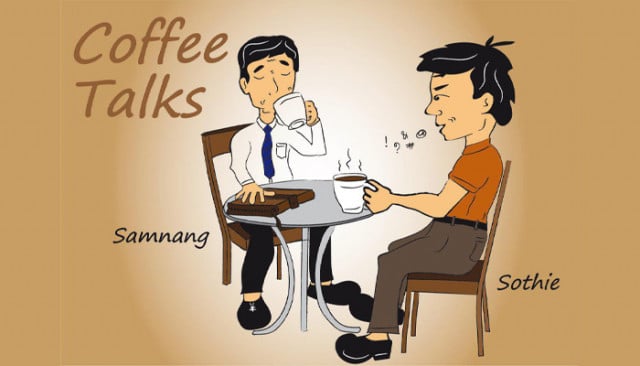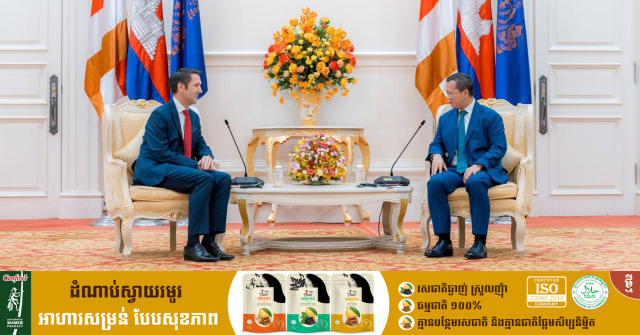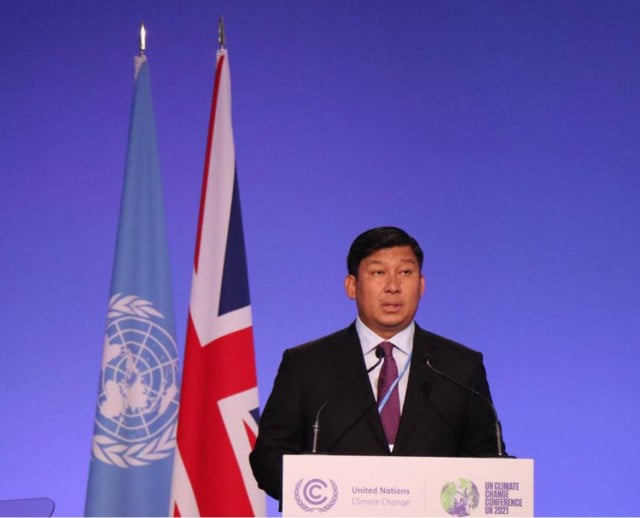EBA: Smart EU! Small sanctions for the government while consoling the opposition

- ThmeyThmey
- February 14, 2020 1:38 AM
During the evening of the Feb. 12, Sothie and Samnang stayed up late in order to witness the decisive moment when the European Union cast their verdict on the infamous Everything But Arms (EBA) preferential trading agreement. After they established talking on the phone that night was not really enough, they resumed their discussion again quite early in the morning at that same Café shop. Until now, the government of Phnom Penh has taken the matter into consideration by responding to the European Union commission. Analytically, Samnang and Sothie want to know whether the decision made by the EU is reasonably correct.
Sothie: Samnang! There have been a lot of debatable comments lately on the topic of EBA. Some mention that Cambodia will lose a big chunk of its tariff-free exports to the EU. Laborers will lose their jobs. The economy will be like this and like that. This can be seen as an economic sanction toward the Cambodian government as well. Yet, there are also contradicting comments at the same time, saying that this will only affect an insignificant portion of the Cambodian economy as a whole. Do you have anything to share, Samnang?
Samnang: As I read the general news platforms, I felt a bit confused. However, when I began to read the official press release altogether, it looks like the entirety of the matter on EBA is not that alarming to the Cambodian government. The press release published by the European Union states that they are willing to cut EBA privileges on $1.09 billion worth of exports from Cambodia to the EU market, but this is out of a total amount of $5.5 billion in which Cambodia earns annually through trading with the EU. The clarification here is that, the EU’s trade preferences has been reduced, but it does not mean that we cannot trade with them anymore. This reduction in trade preferences means that Cambodia is still eligible to do trade with the EU, but with a catch, and that is the main condition of paying taxation which accounts for around $120 million per annum.
Sothie: If that’s so, then the amount is not tremendous. If you break it down, the government and the private sector have to simply pay taxes on roughly $10 million a month. Nothing for the Cambodian government, right?
Samnang: “Nothing” is not completely correct either. There is something, some impact. Though, it is within a small margin. In case the government and the private sectors could solve the issues raised by the EU on time, Cambodia can still do trade with the EU without any obstacles. Nothing is lost. In this point, if Cambodia can achieve it, then it would be a pride for us. Cambodia will not breathe using others’ nose anymore.
Sothie: So the suspension of EBA only serves the favor to comfort the opposition party?
Samnang: The decision of the EU, for me, is quite a smart move after all. It still needs to work with the government and at the very same time, it does not want the opposition party to feel left out. The opposition party’s intention is for the EU to push harder than what is actually happening right now, but the EU undoubtedly put more consideration on their action. The beginning of this EU press releases seems to be very demanding, but at the end of the press release, the EU has mentioned that they are ready to return back the EBA trade preferences package as soon as Cambodia solves its issues. This is just a temporary suspension. Which means that there is a 6-month gap in which Cambodia has to solve the remaining issues. As I see it, the EU just wants to make the opposition party feel a bit satisfied, but the bigger picture is that the EU wants to create a better diplomatic atmosphere with the Cambodian government.















